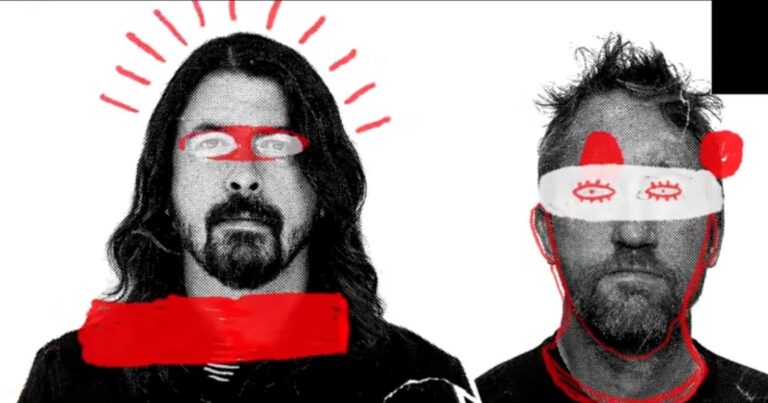
Artists Condemn Fraudulent AI Generated Songs on Spotify

Spotify has recently come under fire for allowing AI-generated and fraudulent tracks to appear on its platform — in some cases, impersonating deceased artists, and in others, misleading listeners with bogus releases from living ones. One notable example involves a new track uploaded to the official Toto Spotify page titled “Name This Night.” The song, which surfaced recently, is almost certainly AI-generated, with no involvement or acknowledgment from the band. Toto’s Steve Lukather confirmed its inauthenticity, stating he filed a formal complaint and criticized Spotify for allowing the track to slip through, calling it “shameless.”
A recent report revealed that Spotify hosted AI-generated tracks under the official artist pages of deceased musicians, including Blaze Foley and Guy Clark. The fake recordings—like “Together” for Foley and “Happened to You” for Clark—were uploaded via a distributor linked to a company called Syntax Error. Spotify eventually removed them for violating its Deceptive Content policy, but not before considerable attention was drawn, including outrage from music estate representatives.
Craig McDonald, owner of Foley’s label, described “Together” as sounding like “an AI schlock bot” — notably divergent from anything the country artist would have created. Other commentators noted that consumers unfamiliar with Foley or Clark could have been misled, damaging both legacies and listener trust.
Toto, although still touring, hasn't released new material officially since 2018’s Old Is New. So the appearance of “Name This Night”—an instrumental track—on their Spotify was immediately alarming. It lacked the band's signature branding and used generic cover art; Lukather himself expressed surprise and disappointment that Spotify allowed it to slip through, confirming he lodged a complaint. This highlights that even for living, active artists, Spotify’s vetting process can be too lax, leaving their official catalogs vulnerable.
The problem stretches further: fraudsters are uploading entire fake bands, using AI vocals and streaming bots to earn royalties while skewing Spotify’s ecosystem. Fans uncovered fictional artists with generic AI-generated content and inflated listener stats, often without any actual presence beyond Spotify. One user wrote:
“The scam here is that people would be searching for a popular song or a playlist, and they find this computer‑generated music…and listen to it instead of the original artist.”
Platforms like Spotify and Deezer claim they have tools to detect and remove AI-generated or bot-streamed content, but critics argue their methods are insufficient and reactive rather than preventive.
These practices aren’t harmless: they siphon royalties from genuine artists and distort the limited payout system. Even if each fraudulent stream pays only fractions of a cent, the volume across many imposter tracks adds up. Meanwhile, legitimate artists may accidentally be flagged by automated fraud-detection systems. Indie acts, in particular, have reported takedowns following unexplained stream spikes — smaller artists often lose both visibility and income due to overly aggressive filtering.
Spotify defends its efforts, stating it dedicates engineering resources to monitor and remove deceptive content, and that AI-generated tracks identified as artificial are fully removed from royalty calculations, thus not diluting the payout pool. The platform also notes it enforces fines and suspensions against distributors that enable fraudulent uploads.
However, many artists, their estates, and music-industry advocates argue these protections don’t go nearly far enough. The industry is calling for stronger vetting, mandatory artist verification, and transparent policies to prevent future misuse.
To truly protect artists and listeners, Spotify and other streaming platforms must implement proactive measures:
-
Stricter AI/Impersonation detection, especially for legacy artist pages and verified catalogs
-
Mandatory identity verification for any uploads claiming affiliation with known artists
-
Transparent appeals and takedown processes, especially when wrongful content removal affects indie creators
-
Closer collaboration with rights-holders, archives, and estates to vet new content before listing
The emergence of AI-generated tracks like Toto’s “Name This Night” on official artist pages highlights a critical weakness in Spotify’s content controls. While the platform has taken steps to remove deceptive content after the fact, the reactive nature of its policies leaves room for abuse that can damage artist legacies and listeners’ trust. As fraudulent uploads proliferate—whether attributed to deceased icons or falsely branded under living artists—the streaming industry faces urgent pressure to bolster verification systems and deter bad actors.
Without immediate reforms, more sophisticated AI-generated imposters will continue to infiltrate music catalogs, distort streaming economics, and erode the integrity of the music ecosystem. Moving forward, robust verification, proactive monitoring, and industry collaboration will be essential to preserving authenticity in digital music.
TOP STORIES
RELATED ARTISTS
Related Stories
Steve Perry Considers a Possible Journey Reunion in 2026
Steve Perry remains one of the most iconic voices in rock history and his legacy is inseparable from Journey’s most…









